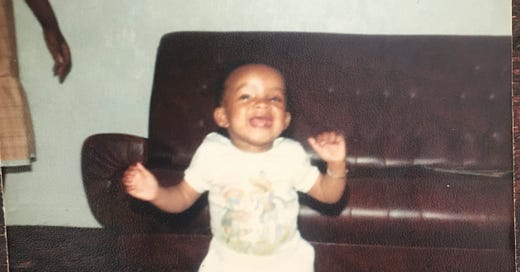For part one, go here. Paid subscribers: Scroll down for the full audio of this post.
One of my mother’s favourite films back in the day was the eighties sci-fi classic Cocoon. Aliens disguise themselves as humans and live next door to a retirement home where some of the residents discover that the alien’s swimming pool possesses life-restoring properties that essentially mean they live forever. I remember little about the film1 bar the moment when the aliens unzip their human ‘costumes’ and reveal their true selves. Well, that’s how I felt during the final confrontation with my mother in February.
Often, in my many conversations with people over almost two decades of this work, I observe and feel this fear many of us have of knowing ourselves. To be truthful about and own who we are means no longer lying to ourselves—about us, about others. It means questioning what we do and don’t know and allowing ourselves to evolve beyond our old ideas and stories of who we thought we had to be. We fear we might lose a person (or few) in the process and that we might not survive it. And there’s truth to this, but not in the way we think it means.
The story we’ve been telling ourselves, the identity we’ve built around our past experiences and the people within them, the emotional baggage we carry won’t survive our growth — and they’re not supposed to.
Your narrative will change, and so with new perspective, there will be letting go.
Your identity will evolve, and so will your sense of self-worth. You’ll no longer be a match for certain people, situations, and things, but you will be for others.
You will unpack, declutter and tidy up your emotional baggage so that you have space for more love, care, trust and respect. You will have space to feel, heal, grow, and learn.
A story I’d told myself was that my mother felt bad about her actions and that she desired a better relationship with me; she wanted to overcome her past. I acknowledged and accepted that her own inner torment meant that, periodically, her issues would get the better of her and she’d lash out.
Despite breaking away from restrictive roles and evolving my boundaries to a much healthier place, I can also see that my desire to not continue the pattern in our family of mother-daughter estrangement unwittingly became a part of my identity. It was as if I wanted to ‘do better’. Perhaps the recovering people pleaser in me was still trying to ‘save’ the family and even ‘save’ her.
By also prioritising processing the effects of my childhood trauma, it inadvertently lay the ‘work’ of our relationship at my door. Although I invested in my emotional, mental, physical and spiritual wellbeing for myself and the betterment of my relationships, I tripped into over-responsibility. Yet again, I was the Mature and Responsible One, and who I evolved into meant I asked little of either of my parents.
Quite frankly, I was too bloody reasonable at times. Being or portraying calm (even if I felt otherwise) in the midst of chaos or while afraid is a skill I learned in childhood. I taught my body not to ‘betray’ me so it wouldn’t make a punishment worse. There was also, sometimes, this sense of Screw you! You are not going to see how much you’re hurting me. You can see how these habits set me up for the string of painful relationships I had in adulthood. I was so detached from myself, from my needs, desires, expectations, feelings, and opinions.
So when we grow and feel more connected to our truth, not only might we see our real selves, but we might just discover that someone isn’t who we thought or hoped they were.
Here’s the craic, and I’m pulling no punches with this one: My mother isn’t sorry, remorseful, empathetic, anything, about anything she’s said and done to me.
This became abundantly clear in a bizarre but not entirely unexpected unleashing, the catalyst of which was my asking, “Would you like me to bring you some breakfast?” and “How did things go with the dentist after I left yesterday?”
As is often the way with unhealthy and abusive relationships and situations, what precipitated the ending of our relationship, while unpleasant, was less so than the many previous incidences. People imagine that when you walk away, it’s from the worst thing they’ve done. Actually, [the worst thing] is often in the past. You realise how much you’ve changed and how the other person hasn’t when, yet again, they lash out.
February’s incident barely touched the sides of what she’s said and done in the past, but what she said and did that morning rang an alarm that couldn’t be unrung.





